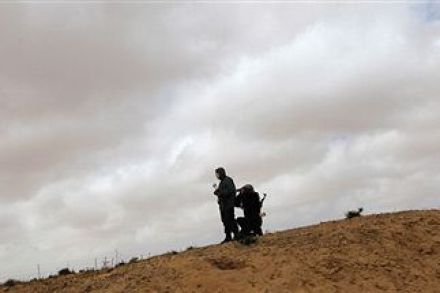Gaddafi’s refugee army
There is one particular question swirling around when it comes to Libya: how brittle is the regime and its military arm? An answer is now slowly emerging, and one that looks like good news for the rebels – if also yet more proof of Gaddafi’s depravity. Reuters is running a story about refugees inside Libya, predominantly from sub-Sahara, being detained, beaten and robbed of their identity papers by Libyan soldiers only to be offered money to take up arms against the rebels. Fergo Fevomoye, a 23-year-old refugee who crossed the Libyan-Tunisian border, told Reuters: “They will give you a gun and train you like a soldier. Then you fight the














